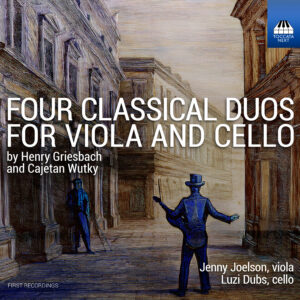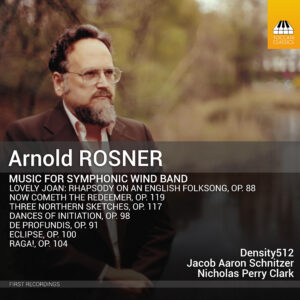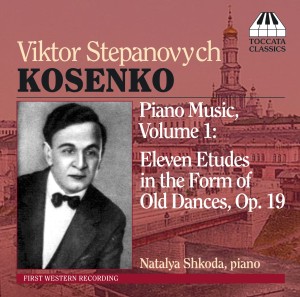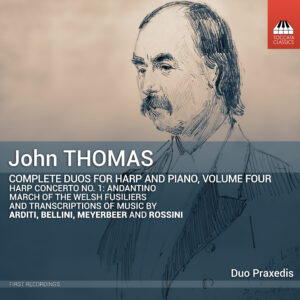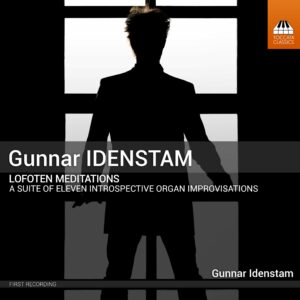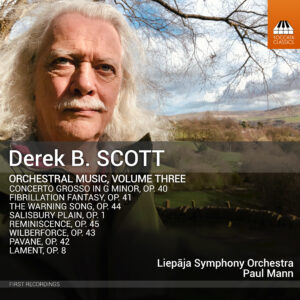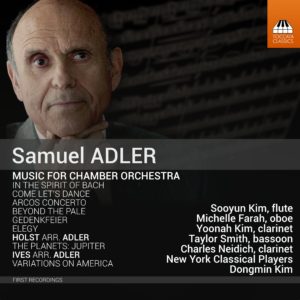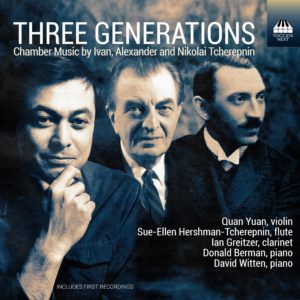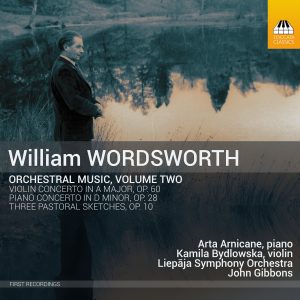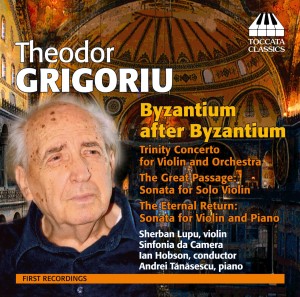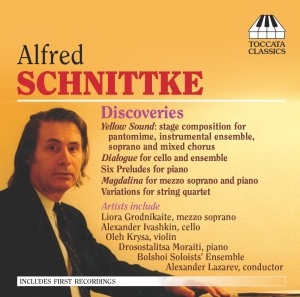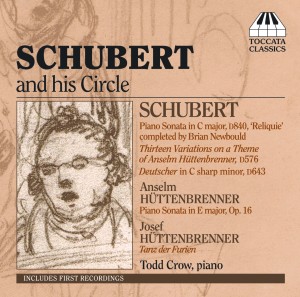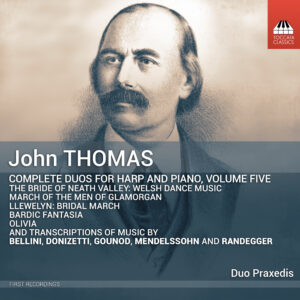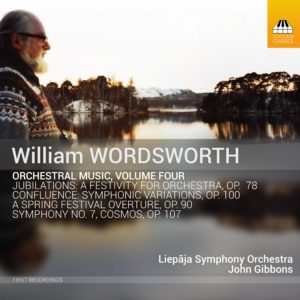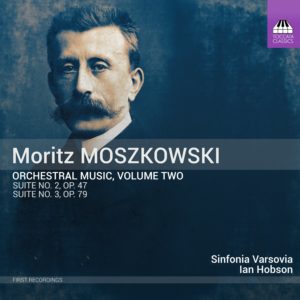Search Results for "The Black Alley Newty Ping" – Page 16
Showing results for black alley net ping
Four Classical Duos for Viola and Cello
For the past two centuries or so, making music has largely been a public business, with paying audiences listening to professional musicians. But for most of western history, outside of formal and religious occasions and local festivities, music-making was largely a domestic affair, with individuals playing for their own pleasure. Most of the music written for the drawing room has long been lost from sight, and its composers forgotten, the two heard here – the Austrian Cajetan Wutky and German-English John Henry (né Justus Heinrich) Griesbach – being cases in point. Their Haydnesque string duos, only recently rescued from obscurity in modern publications, hint at the pleasure their first patrons would have found in performing them.
Jenny Joelson, viola
Luzi Dubs, cello
Arnold Rosner: Music for Symphonic Wind Band
Arnold Rosner (1945–2013) was a New Yorker through and through, but his musical language reached across time and culture, clothing the modal harmony and rhythm of pre-Baroque polyphony in rich Romantic colours, thus producing a style that is instantly recognisable and immediately appealing. Having written his Eighth Symphony for symphonic wind band, he took a liking to the medium, composing seven more works for this popular feature of American university life, none of them recorded before now. Their inspiration is eclectic – from ethnic material and natural phenomena to religious stimuli – but Rosner’s unerring balance of dignity and energy is common to all of them and stamps them with a sound that is uniquely his.
Density512
Jacob Aaron Schnitzer, conductor
Nicholas Perry Clark, conductor
Viktor Stepanovych Kosenko: Piano Music Volume One
Viktor Stepanovych Kosenko (1896–1938) was one of the most important Ukrainian composers and pianists of the first half of the twentieth century. His Eleven Etudes in the Form of Old Dances, Op. 19, of 1927–29 offer an organic synthesis of the late-Romantic piano tradition, neo-Classical impulses in their use of Baroque dance-forms, and elements of Ukrainian folk-music. This recording of a neglected monument in the piano literature is the first step in the discovery of a composer who was once a cultural icon in his native Ukraine but is now as good as unknown outside its borders.
Natalya Shkoda, piano
John Thomas: Complete Duos for Harp and Piano, Volume Four
Harpist to Queen Victoria, the Welsh composer John Thomas (1826–1913) also wrote prolifically for his own instrument, both for solo harp and for duos of two harps or harp and piano – a combination where the different sounds of the two instruments enhance the clarity of the texture. Thomas’ original works use the elegant Romantic style of his own day, but he often drew on Welsh folksong for his inspiration and also left a generous legacy of transcriptions, especially of operatic favourites. Although some of his music was intended for the Victorian drawing room, other pieces require a virtuoso technique – and all of it has a thoroughly engaging melodic appeal.
Duo Praxedis
Praxedis Hug-Rütti, harp
Praxedis Geneviève Hug, piano
Gunnar Idenstam: Lofoten Meditations
In 2019 the Swedish organist and composer Gunnar Idenstam was commissioned to provide the music to a film, The Vegan Toothbrush, by the Norwegian film-maker Trygve Luktvasslimo, which takes seriously the issue of climate change itself but satirises the quasi-religious intensity of climate activists. Idenstam is one of the few remaining organists who maintain the centuries-old tradition of improvisation at the console, and his extemporisations for the film, all of which are concerned with water, developed into a kind of powerfully atmospheric sea symphony.
Gunnar Idenstam, Allen Quantum Q350 digital organ
Derek B. Scott: Orchestral Music, Volume Three
Derek Scott, born in Birmingham in 1950, has an international reputation as an historian of the British music hall and other forms of light entertainment. But he is an outstanding composer in his own right – a master craftsman and natural tunesmith, who manages to unite good humour, unerring technique and deep feeling in music of immediate appeal. Although the works recorded here represent his most recent harvest of orchestral music, for many of them he revisited material composed earlier in his career, using it as the basis for a series of new scores, some exhibiting a very English sense of whimsy, others concerned with deeper matters – one, indeed, inspired by the war in Ukraine. This album has been released with remarkable speed: it was recorded only on 15–18 May this year.
Liepāja Symphony Orchestra
Paul Mann, conductor
Ingus Novicāns, horn
Līga Baltābola and Jānis Baltābols, violins
Klāvs Jankevics, cello
Gertruda Jerjomenko, harpischord
Samuel Adler: Music for Chamber Orchestra
The music of Samuel Adler – born in Mannheim in 1928 but long since one of the leading figures of American music – has its roots in the Neo-Classical clarity of composers like Copland and Hindemith, who were among his teachers. The works on this album arose from a range of impulses: a Neo-Baroque concerto grosso and a tribute to Bach encase a series of tributes to lost individuals and traditions; and two jeux d’esprit – Ives’ tongue-in-cheek Variations on America and Holst’s ‘Jupiter’ from The Planets – both bring jollity in Adler’s idiomatic arrangements for string orchestra.
Sooyun Kim, flute (Tracks 1–4)
Michelle Farah, oboe (Tracks 1–4)
Yoonah Kim, clarinet (Tracks 1–4)
Taylor Smith, bassoon (Tracks 1–4)
Charles Neidich, clarinet (Track 6)
New York Classical Players
Dongmin Kim, leader and conductor
Three Generations
This album explores music by three father-and-son generations of the Tcherepnin family of composers: Nikolai, Alexander and Ivan. Although each wrote a wide range of scores, from solo pieces to operas and ballets, this recording focuses on their chamber music, presenting pieces spanning 95 years. Nikolai’s works for violin and piano reveal a late-Romantic, post-Tchaikovskian sensibility, whereas those of Alexander have a more modern, twentieth-century touch, closer to the style of his friend Sergei Prokofiev (a student of Nikolai Tcherepnin). Ivan is represented by two works — early and late – for flute, clarinet and piano, which have an improvisatory and playful quality.
Quan Yuan, violin (Tracks 1–9)
Sue-Ellen Hershman-Tcherepnin, flute (Tracks 10, 11)
Ian Greitzer, clarinet (Track 11)
David Witten, piano (Tracks 1–10)
Donald Berman, piano (Track 11)
William WORDSWORTH: Orchestral Music, Volume Two
The music of William Wordsworth (1908–88) – a great-great-grandson of the poet’s brother Christopher – lies downstream from that of Vaughan Williams and Sibelius; like that of his contemporary Edmund Rubbra, Wordsworth’s music unfolds spontaneously, as a natural process. This second volume brings two concertos, both major works – though long forgotten, and contrasted in their approach: the gritty and muscular Piano Concerto is cast in a single, tightly argued span, whereas the lyrical Violin Concerto is expansive and unhurried – and deeply touching. They are complemented by the Three Pastoral Sketches, which grow gently from understated autumnal hues to a dignified and moving climax. All three scores show an extraordinary command of orchestral colour.
Arta Arnicane, piano (Tracks 1-5)
Kamila Bydlowska, violin (Tracks 9-11)
Liepāja Symphony Orchestra
John Gibbons
Richard Flury: A Florentine Tragedy: Opera in One Act
The Swiss composer Richard Flury (1896–1967) felt the fascination for A Florentine Tragedy, Oscar Wilde’s drama of love and violence in Renaissance Italy, that also attracted his near-contemporary Alexander Zemlinsky: they set the same libretto. Flury responded to the text with this dark and swirling one-act verismo opera, sizzling with sexual tension, the vocal lines of the three characters unfolding over an orchestral texture remarkable for its plasticity and kaleidoscopic colour. It is preceded here by a dignified but impassioned operatic scena setting Grillparzer’s dramatic treatment of the suicide of the Greek poetess Sappho.
Julia Sophie Wagner (soprano), Tracks 1-3, 5-11
Long Long (tenor), Tracks 2-11
Daniel Ochoa (baritone), Tracks 2-11
Nuremberg Symphony Orchestra
Paul Mann (conductor)
Theodor Grigoriu: Byzantium after Byzantium
Theodor Grigoriu (born in Galaţi, Moldavia, in 1926) is one of the major Romanian composers in the period after Enescu. His vast output is little known outside his own country, although it includes oratorios, symphonies, cantatas, chamber music, film-scores and much more. His musical roots reach back to Romanian folk-music and to the modal melodies of ancient Byzantium — as in this large-scale triptych, Byzantium after Byzantium, which consists of a violin concerto, a sonata for solo violin and a sonata for violin and piano. All three works are performed here by Sherban Lupu, the violinist for whom the music was written.
Sherban Lupu, violin
Sinfonia da Camera, orchestra
Ian Hobson, conductor
Andrei Tănăsescu, piano
Alfred Schnittke: Discoveries
The output of Alfred Schnittke (1934-98) has been documented in recordings more thoroughly than that of any other Russian composer since Shostakovich. But there are a number of works which have not yet been released on CD, and four of the five here are not only first recordings; they also document Schnittke's stylistic evolution over more than four decades of creative activity, moving from the relatively traditional Preludes, via the serial Dialogue and the experimental Yellow Sound to the elliptical Variations, one of his last works, written in the teeth of enormous physical difficulty.
Drosostalitsa Moraiti, piano
Alexander Ivashkin, cello
Ensemble Pentaèdre de Montréal, ensemble
Jeremy Bell, conductor
Nelly Lee, soprano
Bolshoi Soloists’ Ensemble, ensemble
Alexander Lazarev, conductor
Liora Grodnikaite, mezzo soprano
Oleh Krysa, violin
Natalia Lomeiko, violin
Konstantin Boyarsky, viola
Schubert and his Circle
Schubert left more unfinished works than any other composer: his brain moved faster than his pen. Most of these fragments are piano scores, some of them of substantial size. Brian Newbould, whose completions of Schubert’s unfinished symphonies have attracted universal praise, here turns his attention to the expansive C major Sonata of 1825, of which Schubert completed the first two movements and left the other two unfinished. Professor Newbould’s work adds an unsuspected masterpiece to the great sonatas that crown Schubert’s piano career. The other pieces on this CD attest to his close friendship with the brothers Anselm and Josef Hüttenbrenner, themselves accomplished composers.
Todd Crow, piano
John Thomas: Complete Duos for Harp and Piano, Volume Five
The Welshman John Thomas (1826–1913), harpist to Queen Victoria, wrote prolifically for his own instrument, both for solo harp and for duos of two harps or harp and piano – a combination where the different sounds of the two instruments enhance the clarity of the texture. Thomas’ original works use the elegant Romantic style of his own day, but he often drew on Welsh folksong for his inspiration and left a generous legacy of transcriptions, especially of operatic favourites. Although some of his music was intended for the Victorian drawing room, other pieces require a virtuoso technique – and all of it has a thoroughly engaging melodic appeal. This fifth album of his duets for harp and piano ends a series that has seen the revival of music unheard for over a century and a half.
Duo Praxedis
Praxedis Hug-Rütti, harp
Praxedis Geneviève Hug, piano
William Wordsworth: Orchestral Music, Volume Four
The music of William Wordsworth (1908–88) – a great-great-grandson of the poet’s brother Christopher – lies downstream from that of Vaughan Williams and Sibelius; like that of his contemporary Edmund Rubbra, Wordsworth’s music unfolds spontaneously, as a natural process. This fourth volume of his orchestral works presents four works which are all symphonic studies in essence, each remarkable for its unassertive strength of purpose and its suggestion of a sense of scale beyond its actual dimensions – perhaps in part a reflection of the majesty of the Scottish Highlands where he made his home, and of the quiet resolve of his own character.
Liepāja Symphony Orchestra
John Gibbons, conductor
Līga Baltābola, violin (Track 10)
Moritz MOSZKOWSKI: Orchestral Music, Volume Two
The Polish composer Moritz Moszkowski (1854–1925) is best remembered for a handful of virtuoso piano pieces, but he also produced a substantial body of orchestral music, most of it unperformed for a century or more. The first volume in this first-ever survey of his orchestral output presented the monumental ‘Symphonic Poem in Four Movements’ Johanna d’Arc – a vast symphonic fresco depicting the life, death and transfiguration of the heroine of Schiller’s 1801 play Die Jungfrau von Orleans – and drew a warm welcome from the musical press. These two big-hearted Suites continue that process of discovery, opening a treasure chest of gorgeous melody and sumptuous orchestral writing that make these forgotten gems irresistibly attractive.
Sinfonia Varsovia
Ian Hobson, conductor
First recordings
Stay In the Know
JOIN THE TOCCATA NEWSLETTER
"*" indicates required fields
By visiting our site, you agree to our privacy policy regarding cookies, tracking statistics, etc.
